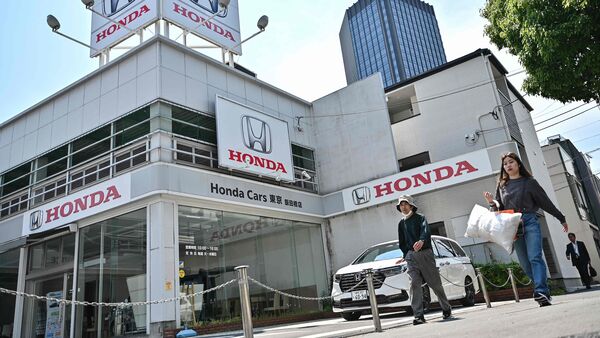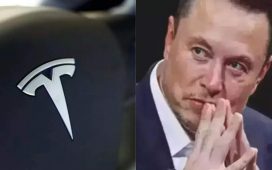Japanese automakers are bracing for a $19 billion hit from US tariffs. Toyota forecasts a $10.7 billion impact, while other brands like Nissan and Honda estimate $3 billion each.

View Personalised Offers on
Japan’s biggest carmakers are looking at a hit of more than $19 billion from US President Donald Trump’s tariffs that have left the global auto industry reeling.
The industry’s top brands warned of a weaker financial performance this year, or withheld guidance altogether, as they tallied up the potential cost of Trump’s ever-changing policies on imports of cars and auto parts. The impact is likely to linger for years as the uncertainty spurs carmakers to rethink their North American investment and production.
Toyota Motor Corp., the world’s biggest carmaker, is likely to be the worst hit. It said last week it expects a ¥180 billion ($1.2 billion) impact to operating income in April and May alone. The figure could be as much as $10.7 billion for the whole fiscal year, according to Bloomberg Intelligence. Pelham Smithers analyst Julie Boote forecasts between $5.4 billion and $6.8 billion.
Nissan Motor Co. and Honda Motor Co. both estimate a $3 billion impact. Subaru Corp., which imports roughly half of the cars it sells in the US, also skipped annual guidance as it predicted a $2.5 billion dent. Mazda Motor Co. forwent a full-year outlook.
Also Read : Toyota sees 21 per cent full-year profit decline as tariffs take a bite
Most vehicles imported into the US were hit with a 25 per cent duty on April 3, while most auto parts became subject to that levy as of May 3. There are some executive orders that prevent tariffs from doubling up, but the policies are expected to add thousands of dollars to the price of cars in the US.
The US is the biggest market for Japan’s top carmakers, which utilise factories in Mexico or Canada to build vehicles that are then sent across the border. But Trump’s import tariffs now make that an expensive, if not unviable, practice and left companies struggling with the costly dilemma of how to overhaul their supply chains to escape the duties.
Japanese carmakers are now hoping that trade negotiations will offer a reprieve as talks with the US likely accelerate later this month. Prime Minister Shigeru Ishiba has vowed not to accept any deal that doesn’t address auto tariffs, given the sector’s importance for the economy.
In the meantime, companies are already rethinking their operations.
Honda said this week it’s postponed by two years plans to spend C$15 billion ($11 billion) to build out its electric vehicle supply chain in Canada, including a factory that could produce 240,000 cars a year. It’s already shifting production of the hybrid version of its Civic from Japan to the US. Almost 40% of the roughly 1.4 million cars it sold in the US in 2024 were imported, according to Bloomberg Intelligence.
Meanwhile, Subaru said it’s reviewing all of its investments, including the development of EVs. Nissan has halted US orders for SUVs built in Mexico, and Mazda is stopping exports to Canada of one model that’s manufactured at an Alabama factory that’s a joint venture with Toyota.
For now, Toyota appears to be taking a longer-term view. The carmaker hasn’t shifted any output since tariffs took effect, and Chief Executive Office Koji Sato said last week it’ll consider building out its production footprint in the US in the medium to long term.
Also Read : Hero MotoCorp reports a profit of ₹1081 crore in Q4 FY25. What supported this growth?
The tariffs are a particularly hard blow for Nissan, which is already in the throes of its worst crisis in a quarter century. The carmaker has vowed to cut 20,000 jobs and shut seven production facilities.
Even with the extensive restructuring, Nissan finds itself in urgent need of a financial lifeline after talks to combine with Honda collapsed earlier this year.
“Nissan’s plight could have been minimised if it had taken these steps sooner,” said Bloomberg Intelligence senior auto analyst Tatsuo Yoshida. “The impact of these measures, compared to what other carmakers are doing or even what Nissan has done in the past, is unclear.”
Get insights into Upcoming Cars In India, Electric Vehicles, Upcoming Bikes in India and cutting-edge technology transforming the automotive landscape.
First Published Date: 15 May 2025, 10:15 AM IST








